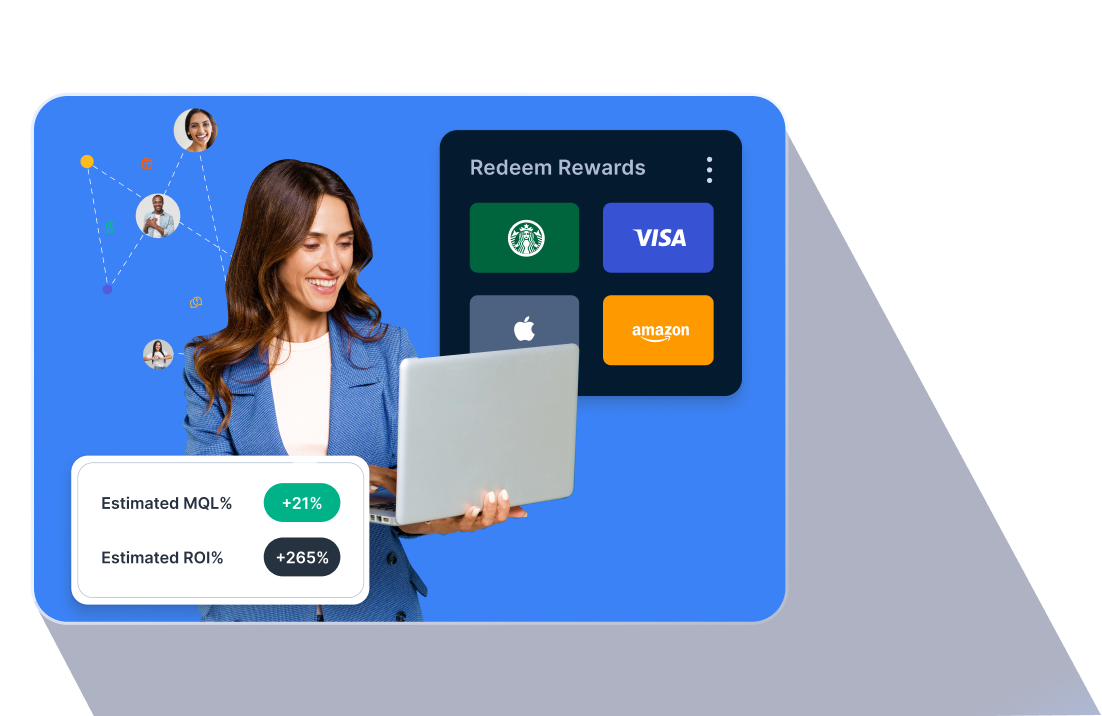
Istilah Daftar Istilah
Plum - Platform Hadiah, Insentif, dan Pembayaran
- Apa yang dimaksud dengan hadiah game?
- Jenis hadiah game apa yang biasanya ditawarkan?
- Mengapa hadiah game digunakan dalam industri game?
- Bagaimana cara gamer mendapatkan hadiah game?
- Bagaimana hadiah game memengaruhi keterlibatan dan motivasi pemain?
- Apakah hadiah game dapat digunakan di beberapa game atau platform?
- Apakah ada batasan atau larangan dalam penggunaan hadiah game?
Hadiah Permainan
Hadiah game adalah insentif atau manfaat yang diberikan kepada pemain game atas pencapaian, kemajuan, atau partisipasi mereka dalam aktivitas terkait game. Hadiah ini dapat berupa berbagai bentuk, seperti mata uang dalam game, item virtual, lencana, level, atau akses ke konten eksklusif. Hadiah game dirancang untuk meningkatkan pengalaman bermain game, memberikan rasa pencapaian, dan mendorong keterlibatan dan kesetiaan yang berkelanjutan di antara para pemain.
Apa yang dimaksud dengan hadiah game?
Insentif atau penghargaan yang terkait dengan aktivitas bermain game, sering digunakan dalam program tempat kerja yang digamifikasi untuk memotivasi dan melibatkan karyawan.
Jenis hadiah game apa yang biasanya ditawarkan?
Spektrumnya sangat luas, tetapi beberapa hadiah yang populer termasuk:
- Kosmetik dan kustomisasi: Kulit, pakaian, senjata, tunggangan, atau kendaraan baru untuk mempersonalisasi pengalaman pemain.
- Mata uang dalam game: Koin, permata, atau token virtual yang digunakan untuk membeli item, peningkatan, atau kemampuan dalam game.
- Peningkatandan peningkatan daya: Peningkatan sementara untuk statistik, kemampuan, atau kecepatan perkembangan pemain.
- Akses lebih awalatau konten eksklusif : Mendapatkan akses ke fitur-fitur baru, versi beta, atau item eksklusif sebelum pemain lain.
- Kotak harta karun dan hadiah acak : Membuka kotak misteri dengan peluang memenangkan barang berharga, mata uang, atau kejutan.
- Pengakuan sosialdan papan peringkat: Mencapai posisi teratas di papan peringkat, mendapatkan gelar bergengsi, atau menerima pengakuan publik dalam game.
Mengapa hadiah game digunakan dalam industri game?
Hadiah permainan memiliki beberapa tujuan penting:
- Meningkatkan keterlibatan dan retensi pemain: Mereka memberi insentif kepada pemain untuk terus bermain, menyelesaikan tugas, dan maju melalui permainan, meningkatkan waktu yang dihabiskan dan keterlibatan berulang.
- Monetisasidan pembelian dalam aplikasi: Sistem hadiah dapat mendorong pemain untuk membelanjakan uang sungguhan untuk membeli item virtual, mata uang, atau boost untuk membuka hadiah tertentu dengan lebih cepat.
- Loyalitas merekdan pembangunan komunitas: Memberi penghargaan kepada pemain untuk perilaku tertentu akan menumbuhkan rasa komunitas dan loyalitas terhadap game dan pengembangnya.
- Pengumpulan datadan wawasan pengguna: Melacak penggunaan hadiah memberikan data berharga tentang preferensi, perilaku, dan pola perkembangan pemain, yang menginformasikan desain game dan strategi pemasaran di masa depan.
- Meningkatkankepuasan dan motivasi pemain: Menerima hadiah untuk pencapaian dan kemajuan memberikan rasa pencapaian dan membuat pemain termotivasi untuk mencapai tujuan mereka.
Bagaimana cara gamer mendapatkan hadiah game?
Cara mendapatkan hadiah bervariasi di setiap game, tetapi metode yang umum termasuk:
- Menyelesaikan misi atau tantangan: Mencapai tujuan tertentu dalam game, seperti mengalahkan bos, mencapai level, atau menyelesaikan misi sampingan.
- Tugas harian/mingguan: Berpartisipasi dalam aktivitas rutin seperti masuk, bermain untuk waktu tertentu, atau menyelesaikan tantangan mini harian.
- Pencapaian dalam game: Mendapatkan piala atau penghargaan untuk prestasi atau pencapaian tertentu di dalam game.
- Interaksi sosial: Berkolaborasi dengan pemain lain, bergabung dengan guild, atau berpartisipasi dalam kegiatan sosial.
- Monetisasidan pembelian dalam aplikasi : Membelanjakan uang sungguhan untuk item virtual atau mata uang game dapat membuka hadiah tambahan.
Bagaimana hadiah game memengaruhi keterlibatan dan motivasi pemain?
Sistem hadiah yang efektif dapat secara signifikan memengaruhi keterlibatan dan motivasi pemain:
- Rasa pencapaian dan perkembangan: Memberikan penghargaan kepada pemain atas upaya mereka akan memperkuat pengalaman positif mereka dan membuat mereka terus bergerak menuju tujuan.
- Keragamandan penyesuaian: Opsi hadiah yang beragam memenuhi preferensi pemain yang berbeda, memungkinkan pengalaman yang dipersonalisasi dan peningkatan investasi dalam permainan.
- Kompetisi sosialdan pembangunan komunitas: Papan peringkat dan pengakuan sosial mendorong kompetisi dan kolaborasi yang sehat, memperkuat komunitas game.
- Motivasi dan keterlibatan intrinsik: Jika dirancang dengan cermat, hadiah dapat mendorong motivasi intrinsik untuk bermain demi kesenangan dan tantangan, bukan hanya hadiah ekstrinsik.
Apakah hadiah game dapat digunakan di beberapa game atau platform?
Portabilitas tergantung pada hadiah dan ekosistem game tertentu:
- Game yang berdiri sendiri: Hadiah biasanya terbatas pada game tertentu di mana hadiah tersebut diperoleh.
- Waralabaatau game yang terhubung : Hadiah dapat ditransfer dalam seri game atau platform yang terhubung oleh pengembang yang sama.
- Program khusus platform: Beberapa platform seperti Xbox Live atau PlayStation Network mungkin menawarkan sistem hadiah yang berlaku untuk beberapa game di dalam ekosistem mereka.
- Program pihak ketiga: Program hadiah eksternal yang ditawarkan oleh pengembang non-game mungkin menawarkan hadiah lintas game yang dapat ditukarkan dengan manfaat dunia nyata.
Apakah ada batasan atau larangan dalam penggunaan hadiah game?
Batasan dan larangan penggunaan hadiah game akan ada:
- Kekhawatiran bayar untuk menang: Terlalu menekankan pembelian dalam aplikasi dan hadiah yang mahal dapat menciptakan keuntungan yang tidak adil bagi pemain yang membayar, sehingga membahayakan keseimbangan permainan dan kepuasan pemain.
- Kecanduandan perilaku kompulsif : Beberapa sistem hadiah, terutama kotak jarahan dengan hadiah acak, dapat memicu perilaku kecanduan pada individu yang rentan.
- Distribusi hadiah yang tidak merata: Sistem hadiah yang sangat kompetitif dapat menyebabkan frustrasi dan putus asa bagi pemain yang berjuang untuk mengimbangi pemain top.
- Keseimbanganantara motivasi dan eksploitasi : Hadiah harus dirancang dengan hati-hati untuk memotivasi pemain tanpa terasa manipulatif atau eksploitatif.
Hadiah game dapat menjadi alat yang ampuh untuk meningkatkan keterlibatan pemain, motivasi, dan pembangunan komunitas. Namun, sangat penting bagi pengembang untuk menerapkannya secara bertanggung jawab, dengan mempertimbangkan potensi keterbatasan dan mengupayakan pengalaman yang seimbang dan bermanfaat bagi semua pemain.

